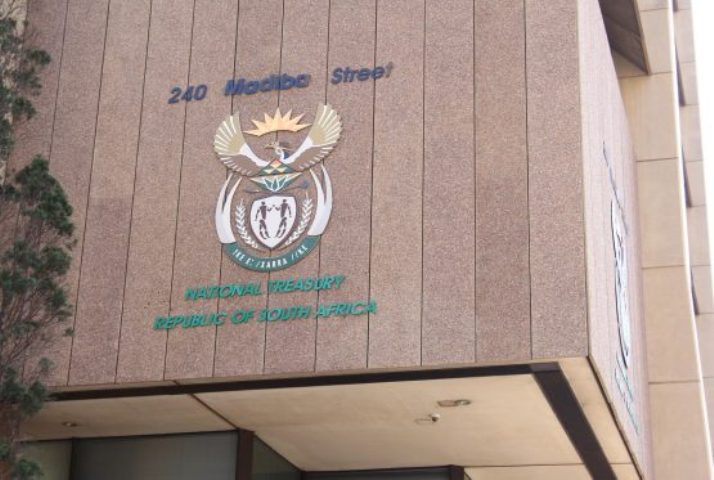National Treasury Launches MzansiXchange to Drive Data-Driven Governance
For years, the public sector has grappled with fragmented data systems, siloed information repositories, and limited interoperability between departments.

- Country:
- South Africa
South Africa has taken a major stride towards building a digitally connected and evidence-based public sector with the launch of MzansiXchange, a landmark government data exchange platform designed to transform how state institutions share, manage, and utilise information.
Unveiled on Thursday in Pretoria, the initiative—spearheaded by the National Treasury—marks a decisive shift in how government departments will coordinate their data systems to improve service delivery, efficiency, and public accountability.
Bridging the Gap in Government Data Systems
For years, the public sector has grappled with fragmented data systems, siloed information repositories, and limited interoperability between departments. These inefficiencies have often resulted in duplication, policy delays, and misaligned service delivery.
National Treasury Director-General Dr Duncan Pieterse said MzansiXchange represents a transformative response to these challenges.
“These challenges have constrained our ability to make evidence-based decisions, deliver integrated services, allocate resources efficiently, and build public trust in government systems. MzansiXchange addresses these gaps by enabling secure, structured, and coordinated data sharing across government,” Pieterse explained.
Unlike a traditional centralised data system, MzansiXchange does not store any data. Instead, it functions as a secure, governed bridge that connects departments while allowing them to retain ownership of their datasets. This approach promotes both data sovereignty and cross-government collaboration.
Grounded in South Africa’s Digital Transformation Roadmap
The platform is a direct outcome of the Roadmap for the Digital Transformation of Government, launched in May 2025 as part of Operation Vulindlela Phase II, a joint reform programme of the National Treasury and the Presidency.
The roadmap outlines four pillars essential for modernising government services:
-
Data Exchange
-
Digital Identity
-
Digital Payments
-
Digital Services
MzansiXchange, as the first major implementation of this roadmap, embodies the “data exchange” pillar by establishing a trusted mechanism for inter-departmental collaboration while adhering to stringent security and privacy standards.
Building on Global Best Practices and Open Standards
The pilot version of MzansiXchange is built on X-Road, an internationally recognised open-source data exchange framework that underpins similar digital infrastructures in countries such as Estonia and Finland.
According to Pieterse, the platform’s technical architecture emphasises resilience, standardisation, and inclusion. “MzansiXchange’s design supports flexible mechanisms and robust interoperability to ensure long-term sustainability and scalability across government,” he said.
The initiative incorporates governance frameworks, standardised data protocols, and clear expectations for metadata quality and interoperability. Additionally, it will formalise data-sharing agreements through legal instruments like Memoranda of Understanding (MoUs) and Service Level Agreements (SLAs) to ensure accountability and compliance.
Four Pillars of Data Access and Use
MzansiXchange offers four core access mechanisms tailored to different institutional needs:
1. Data Sharing for Regulation, Compliance, and Verification
This allows authorised entities to access identifiable data in real time for verification purposes. For example, departments can securely verify citizen information during enrolment for social grants or public programmes, ensuring efficiency and reducing fraud.
2. Data Sharing for Evidence-Based Policy, Planning, and Research
Under this component, de-identified data from multiple government institutions can be integrated within a secure environment for research and policy formulation. This will support targeted interventions across sectors such as education, taxation, and social protection.
3. Data Sharing for Operational Analytics
MzansiXchange facilitates the transfer of operational data—both identifiable and de-identified—between institutions. This helps improve coordination in financial management, procurement planning, and resource allocation.
4. Open Access Data Sharing
Through secure access portals, users will be able to explore data catalogues, dashboards, and aggregated datasets. Examples include spatialised tax data from the National Treasury Secure Data Facility and other locally integrated datasets that can inform economic and social planning.
Testing, Implementation, and the Road Ahead
The one-year pilot phase of MzansiXchange will test the system’s technical and institutional readiness under real-world conditions. The insights gained will inform its national rollout and integration across all major government departments.
Pieterse described the initiative as a national commitment to harnessing data for public good.
“MzansiXchange is a platform for collaboration, innovation, and transformation. Its success depends on how each of us—across departments—commit to supporting and using it,” he said.
As the platform matures, it is expected to underpin a new era of data-driven governance—enabling evidence-based policymaking, improving public service delivery, and building a more transparent and accountable state.
With MzansiXchange, South Africa joins a growing cohort of nations leveraging digital public infrastructure to unlock the full value of government data for inclusive development and long-term sustainability.
ALSO READ
Ramaphosa Secures €11.5bn EU Investment to Power South Africa’s Green Future
Nadine de Klerk's Heroics Propel South Africa to Victory Over India in Women's World Cup Thriller
Nadine de Klerk's Stellar Finish Propels South Africa to Victory
India lose to South Africa by three wickets in Women's World Cup match in Visakhapatnam.
Epic Showdown: Undefeated India to Face Resurgent South Africa in ICC Women's World Cup Clash










